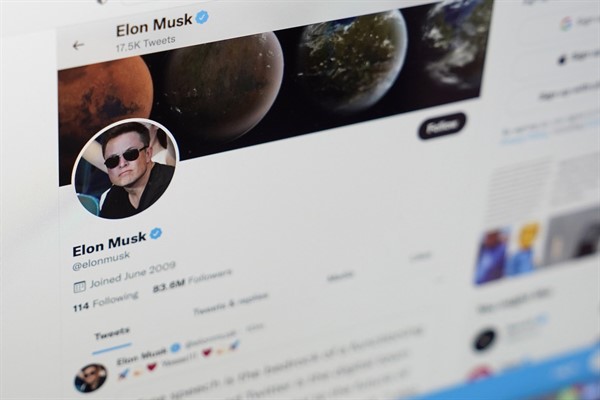Two developments in the past week conspired to put the polarized debate over free speech and government regulation of social media in sharp focus. Last Saturday, the European Union reached a final deal on its Digital Services Act, which will hold the major social media platforms operating in the bloc responsible for removing illegal content and disinformation. And on Monday, Twitter reached a deal with Elon Musk, a self-described “free speech absolutist,” to purchase the publicly traded platform and take it private.
The EU legislation responds to the growing popular unease with the unintended effects social media has had on everything from political polarization to geopolitical competition, to say nothing of its potentially harmful impact on users, particularly young people. A decade ago, social media was celebrated for the role it played in facilitating the Arab uprisings in the Middle East. But repressive governments soon found ways to limit its disruptive power in the hands of dissidents and even coopt it for their own uses.
As the role of Russian disinformation campaigns to influence elections in the U.S., Europe and elsewhere became clearer in the past six years, the debate over social media transformed dramatically, with alarm growing in Western capitals over its dangerous implications for national security. Social media platforms’ control over vast amounts of user data has drawn increasing fire from privacy advocates. The use of social media to incite mass violence has drawn criticism from human rights activists. And the dissemination of illegal content, as well as the use of social media platforms to enable criminal activity, has long been a focus of campaigns to regulate them.

